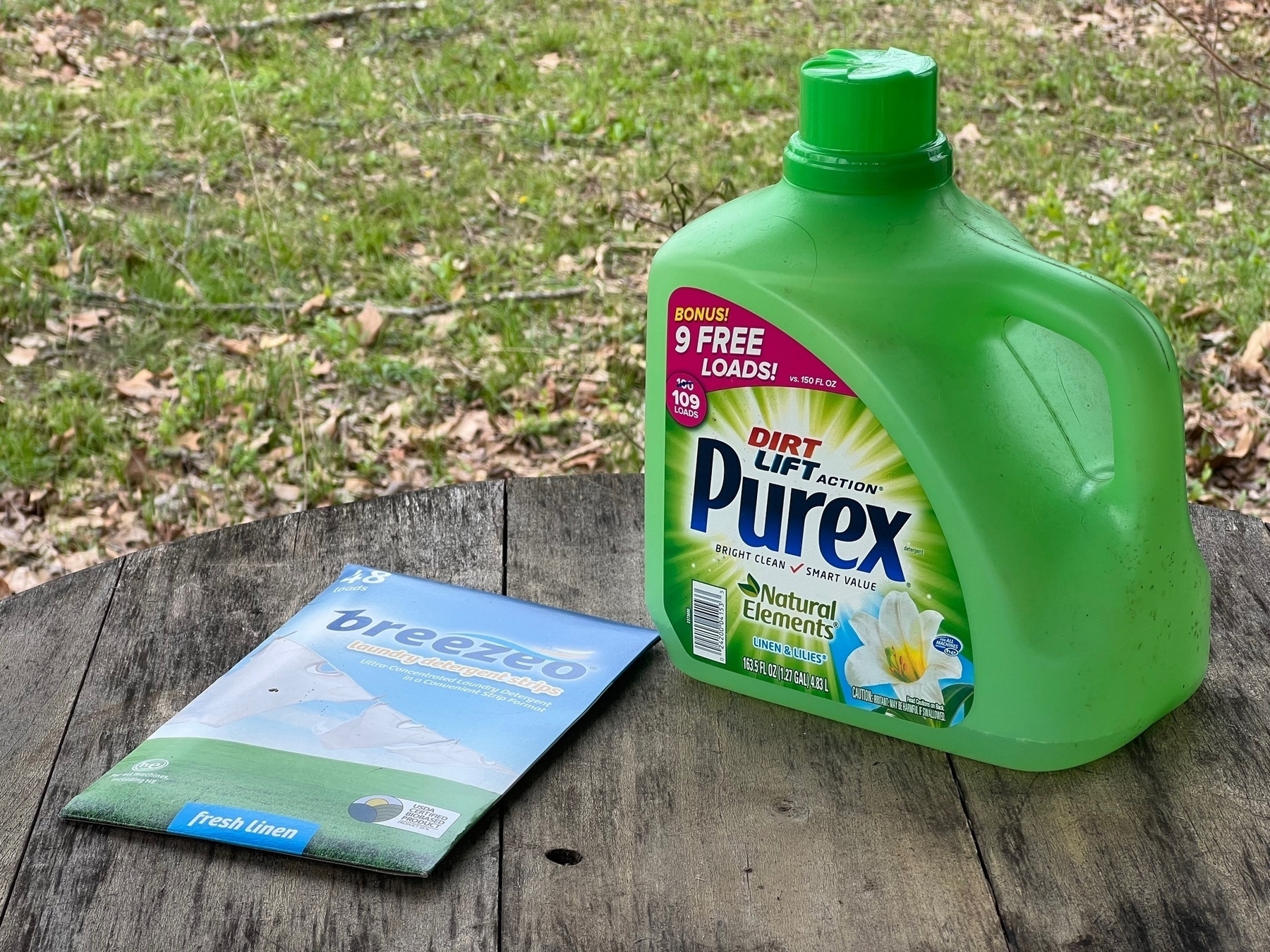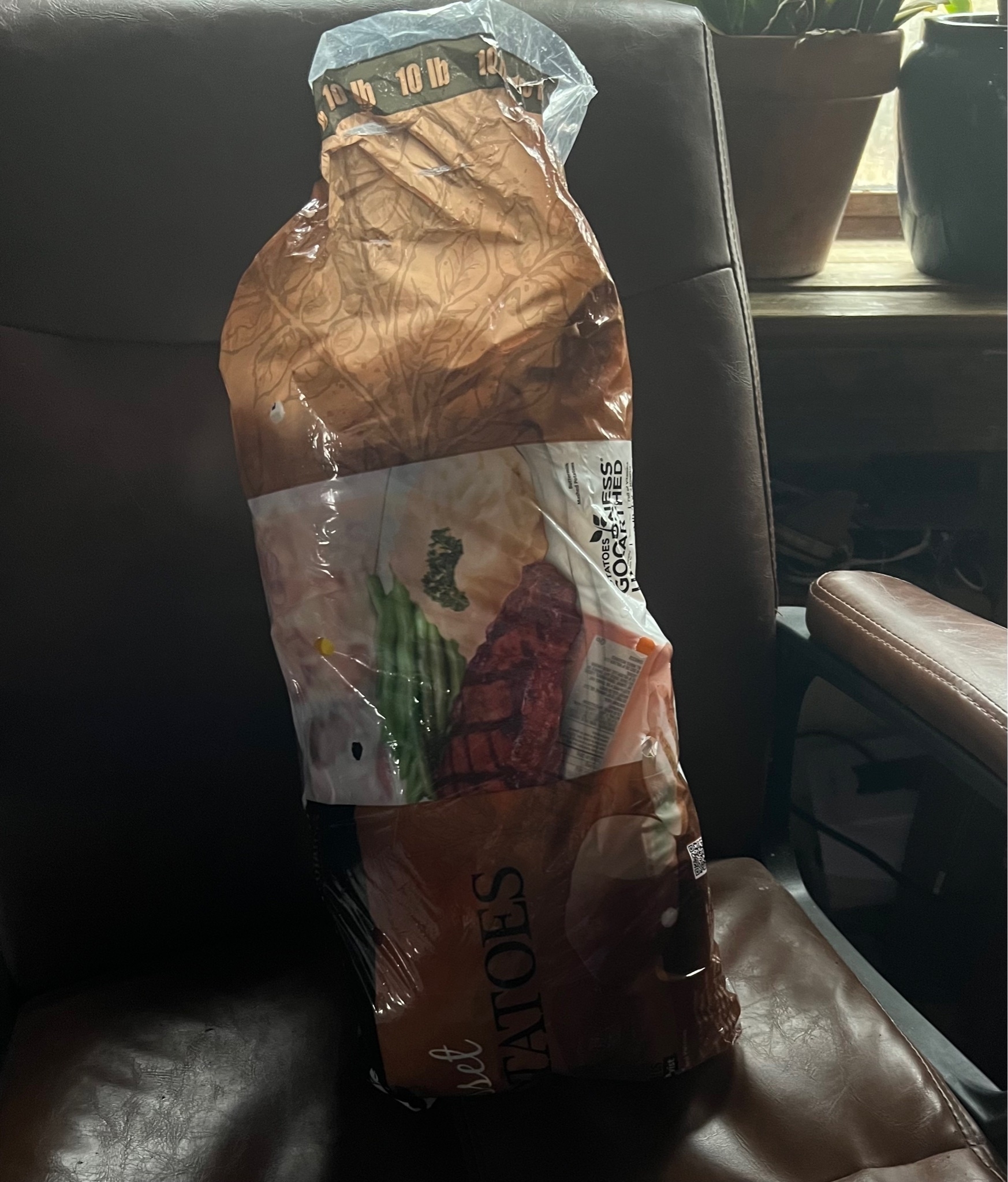Climate Emergency
I've written several times about reducing waste. I don't wash my clothes as often as most people and when I do I tend to dilute so this jug has lasted me for a long time. Going forward I'll be using soap strips that come in paperboard. Imagine the energy/waste saved if millions did the same.
I have some bad news. Civilization is going to collapse. Not in 1000 years, not in 100 years, but within the lifetimes of most people alive today.
It doesn’t necessarily mean humans will go extinct, but at the very least, billions of people are going to die from disease, violence, starvation, dehydration, natural disasters, and war.
How do I know this? Because it has already begun.
Our global industrial civilization has been headed for collapse for at least 50 years…
Overshoot: Why It’s Already Too Late To Save Civilization | Medium
Off the coast of Antarctica, trillions of tonnes of cold salty water sink to great depths. As the water sinks, it drives the deepest flows of the “overturning” circulation – a network of strong currents spanning the world’s oceans. The overturning circulation carries heat, carbon, oxygen and nutrients around the globe, and fundamentally influences climate, sea level and the productivity of marine ecosystems.
But there are worrying signs these currents are slowing down. They may even collapse.
Torrents of Antarctic meltwater are slowing the currents that drive vital ocean overturning
The expanded alliance supporting e-bikes reflects an evolution in the priorities of environmental groups. After focusing largely (some might say myopically) on electrification as a pathway to decarbonize transportation, many climate advocates are ready to lobby for less driving, period—not just less gas-powered driving.
Transportation has long been a major source of greenhouse gases in the United States, with cars and light trucks producing more than half of such emissions.
E-bikes credit: How the environmental groups finally learned to see a future with less driving.
The Greenland Ice Sheet covers 1.7 million square kilometers (660,200 square miles) in the Arctic. If it melts entirely, global sea level would rise about 7 meters (23 feet)…
“The first tipping point is not far from today’s climate conditions, so we’re in danger of crossing it,” said Dennis Höning, a climate scientist at the Potsdam Institute for Climate Impact Research who led the study. “Once we start sliding, we will fall off this cliff and cannot climb back up.”
The Greenland Ice Sheet is close to a melting point of no return - AGU Newsroom
My waste reduction effort
This is about 8 weeks of waste. Not in this photo are the steel cans that are recycled and paperboard food packing this is composted and used as mulch. The key is eliminating products that only come in hard plastic containers. I've also cut out glass.
Living as though the future mattered
I write this in 2023 when our climate emergency has become increasingly obvious to everyone. No longer is it just climate scientists and activists that are taking note. But we’re all aware now aren’t we? Those of us that agree with science and who are observing nature are living in a state of constant climate anxiety. Personally, I can say it’s on my mind all of the time as a sort of background dread.
It’s hard to be honest and also find hope as our current trajectory is very much in the wrong direction and there are no signs that our political, cultural or economic systems are prepared to move us in the opposite direction. Truthfully, we’ve given up before we ever really started. Most of us see that our political systems have failed and we have no hope that they’ll suddenly shift course. But we ourselves are a part of that problem. We accusingly point our fingers at politicians, corrupted political processes, corporations and then we throw up our hands proclaiming there’s nothing we can possibly do. We put on a show of being frustrated and angry but then we go along with the convenient way of life we’re used to. We let ourselves off the hook. We take no responsibility.
We are dooming not just ourselves but future humans. It’s deferred violence. Imagine stepping outside with an all powerful gun, aiming it up into the sky and sending a spray of bullets up into the sky. With this particular gun though we can be certain that every bullet will come down and every bullet will find a target. That’s our inaction. That’s our convenience. Our way of life is causing current and future destruction, misery and death.
And it’s long past the time that we stare into that deep, dark truth. It’s time we squarely face our role in it and stop making excuses about how we’re powerless. Our action has been to doom others. Children, grandchildren, other species-to not just suffering, but in some cases, to extinction.
We’ve already committed ourselves to 1.5 degrees of warming and all evidence is that we’ve likely committed to something much worse. The burning truth of our relatively near future will be human, ecological and planetary catastrophe.
All that said if 300 million US citizens lived as though the future actually mattered, if we would commit to real and yes, drastic changes to our lives, we could at least begin to turn the ship. We can begin the process of adapting and getting used to new realties. We, the people, must lead because waiting for the political process to fix THIS problem is folly.
I can see no higher purpose than to live as though the future mattered. To do otherwise, is to be complicit in the worst possible crimes. We can begin now. Our everyday choices can be choices based on restraint. We can do with far less and we can commit to being uncomfortable now, to begin to offset the worst case futures. We don’t do this alone. We encourage one another. We share resources. We talk and comfort one another. We can build a better world starting today by doing less, consuming less, driving less, flying less. Far, far, far less. Our goal and our commitment is to get to zero emissions. ZERO. Think about that. Really let it settle in. Reconcile with it. That is the necessity.
But even that isn’t enough. Frankly, those of us that live in the US, those of us that live in the “developed world”, we also owe the future, our fellow species and our neighboring humans in developing nations an apology and our humility. For all of our finger pointing at the rich, the politicians, the corporations, many millions of us have continued to insist on a convenient life as a right. And that’s a part of the crime we’ve committed.
Let’s take a step back from the brink. Pause in our lives and confront what we’ve done, what we’re doing.
Now let’s live as though our future matters.
Note about this post: Not surprisingly I recently shared a climate-related article and in the discussion that followed something I wrote resonated with folks. Patrick suggested I share in a stand alone blog post so, this is me doing that.
Scientists have delivered a “final warning” on the climate crisis, as rising greenhouse gas emissions push the world to the brink of irrevocable damage that only swift and drastic action can avert.
The Intergovernmental Panel on Climate Change (IPCC), made up of the world’s leading climate scientists, set out the final part of its mammoth sixth assessment report on Monday.
Scientists deliver ‘final warning’ on climate crisis: act now or it’s too late | The Guardian
It’s brown, it weighs millions of tons, it stretches over 5,000 miles and it is headed for Florida’s beaches. An enormous clump of seaweed circulating the Gulf of Mexico and Atlantic is set to coat beaches in a spongy goop, bringing with it a pungent odor similar to rotting eggs.
This is one of the many, many details that people don’t think about in regards to climate change. So many things will change going forward.
Florida beaches brace for 5,000-mile blob of seaweed to deposit rotting goop | The Guardian
There is something very wrong with global food production. From farm to fork, the food system as it currently exists is the most environmentally destructive of all human activities. More than half of the Earth’s habitable land is used for agriculture, and the replacement of natural ecosystems with farms and ranches has devastated biodiversity. Over the past 50 years, the average size of wild animal populations has decreased by nearly 70 percent.
To Tackle Climate Change, Stop Farming the Planet to Death - James Dyke
There is, in reality, absolutely no reason to believe that the necessary changes will make us less happy or less satisfied. If we manage to do this right, then our lives will be given more meaning than selfish, shallow over-consumption can ever give us. Instead, we can make time and space for community, solidarity, and love—the true tenets of a good life.
Greta Thunberg: Saving the Climate Means Changing How We Live | Time
Going in the wrong direction.
China approved the construction of another 106 gigawatts of coal-fired power capacity last year, four times higher than a year earlier and the highest since 2015, research shows.
Over the year, 50GW of coal power capacity went into construction across the country – up by more than half compared with the previous year – driven by energy security considerations, the Centre for Research on Energy and Clean Air (CREA) and Global Energy Monitor (GEM) said on Monday.
China approves biggest expansion in new coal power plants since 2015, report finds | The Guardian
Last year, 3 million were displaced in the US. Millions more will follow – and neither they, the government or the housing market are ready
The American climate migration has already begun | The Guardian
We’re Crossing the Threshold of Survivability — And There’s No Going Back My friends in the Indian Subcontinent tell me stories, these days, that seem like science fiction.
The Age of Extinction Is Here — Some of Us Just Don’t Know It Yet | by umair haque
Weeks of dry winter weather have raised concerns that Italy could face another drought after last summer’s emergency, with the Alps having received less than half of their normal snowfall.
Venice canals start to run dry as low tide and lack of rain hit | Italy | The Guardian
Underneath thousands of feet of Thwaites Glacier’s solid ice, a bot filmed peculiar features, where melting is much faster. It’s an ominous sign for rising sea levels.
A Robot Finds More Trouble Under the Doomsday Glacier | WIRED
2023-02-14 20:19
The climate crisis is causing sea levels to rise faster than for 3,000 years: Some nations could cease to exist, drowned under the waves.
Rising seas threaten ‘mass exodus on a biblical scale’, UN chief warns | The Guardian
If you think the rich nations of the world are making real progress towards achieving limits on global warming, think again. In one essay, Kevin Anderson, professor of energy and climate change at the Universities of Manchester, Uppsala and Bergen, puts it this way: “Wealthy nations must eliminate their use of fossils fuels by around 2030 for a likely chance of 1.5C, extending only around 2035 to 2040 for 2C… We are where we are precisely because for thirty years we’ve favoured make-believe over real mitigation.
Greta Thunberg’s ‘The Climate Book’ urges world to keep climate justice out front | TPR
“Thunberg said it was “completely ridiculous” that chief executive of the Abu Dhabi National Oil Company (ADNOC), will preside over the next round of global climate talks in Dubai.”
Greta Thunberg blasts decision to let UAE oil boss chair climate talks | The Guardian

